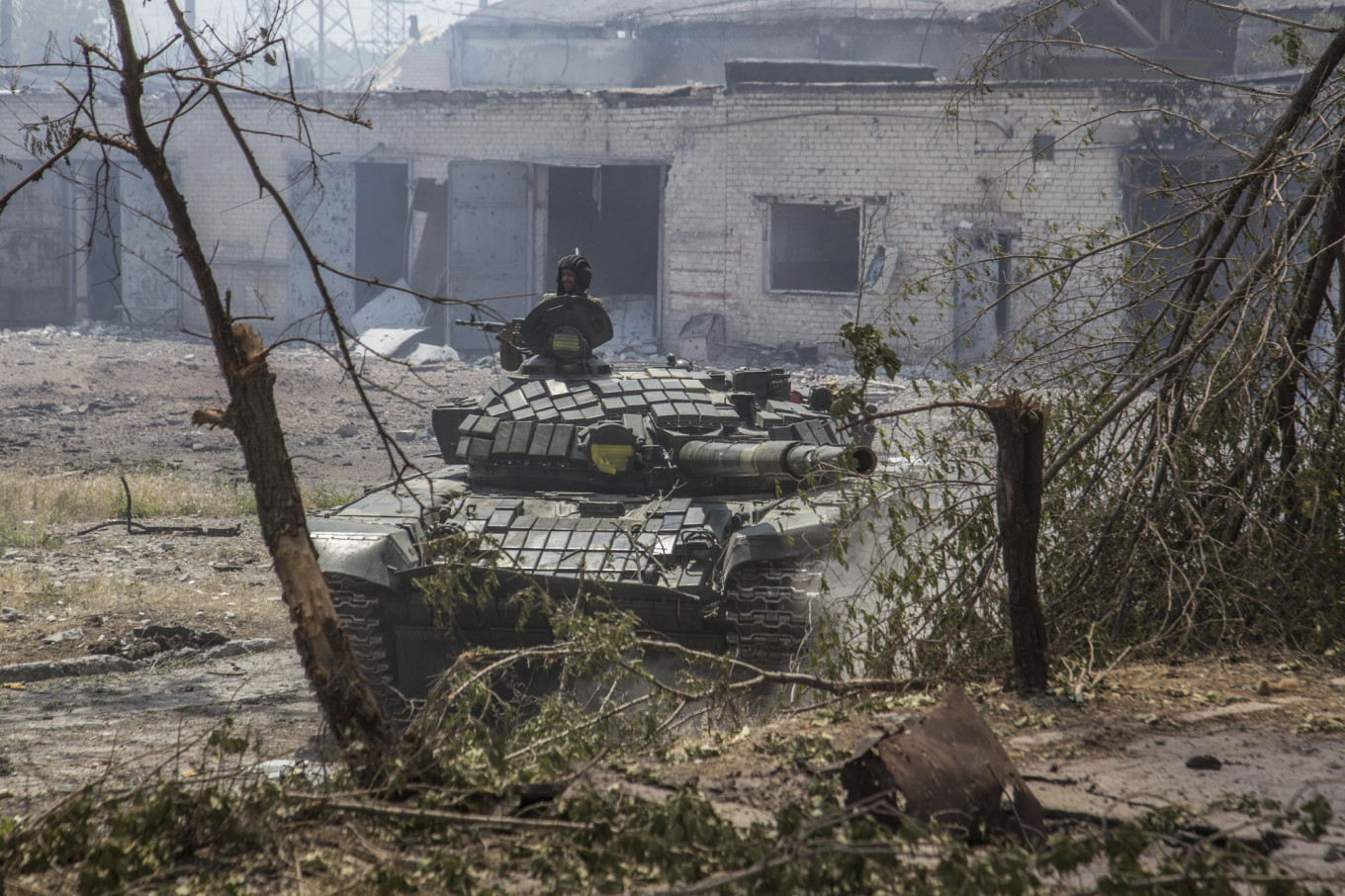
Ukraine pleaded with Western governments Wednesday to decide quickly on sending heavy weapons to shore up its faltering defenses, as Russia said it would evacuate civilians from a frontline chemical plant.
The industrial city of Severodonetsk is under intense bombardment as Russia focuses its offensive on the Donbas region in an effort to secure a swathe of eastern and southern Ukraine.
Moscow’s forces have intensified efforts to cut off beleaguered Ukrainian troops remaining in the city, and have said that they will open a corridor to allow civilians to flee the besieged factory.
Western defense ministers, including U.S. Defense Secretary Lloyd Austin, were meeting at NATO headquarters in Brussels, under pressure to step up weapons shipments to Ukraine.
“Brussels, we are waiting for a decision,” Mykhaylo Podolyak, senior aide to President Volodymyr Zelensky posted on social media, warning that Ukraine’s artillery is outgunned by 10 to one.
“Daily, I receive a message from the defenders: ‘We are holding on, just say: when to expect the weapons?'” he said.
‘Critical situation’
But NATO chief Jens Stoltenberg, hosting the meeting of around 50 allies and partners, warned it would take time to get the latest hardware into service with trained Ukrainian troops.
“Ukraine is really in a very critical situation and therefore, it’s an urgent need to step up,” Stoltenberg told journalists ahead of a gathering of NATO ministers.
The West has poured arms into Ukraine, but Kyiv complains it has only received a tenth of what it needs and is clamoring for heavier weaponry.
Stoltenberg said the allies had moved from sending older equipment to delivering “more long-range, more advanced air defense systems, more advanced artillery, more heavy weapons.”
But he added “there will also be some time needed to just make the Ukrainians ready to use and operate these systems.”
He said NATO members, such as the Netherlands, plan to offer training to Ukrainian forces to get them up to speed on the new heavy guns going in.
Stoltenberg said alliance leaders should agree a “comprehensive assistance package” for Ukraine at a summit in Madrid later this month.
About 500 civilians are taking shelter in Severodonetsk’s Azot chemical plant, according to the head of the city’s administration.
The Russian Defense Ministry announced a humanitarian corridor would be established on Wednesday for evacuations from the plant, saying it was “guided by the principles of humanity.”
Evacuees would be transported to the city of Svatovo in the separatist-held region of Lugansk, Moscow said, urging those holding out at the plant to cease their “senseless resistance.”
There was no response from Kyiv to the announcement, and in a video address Tuesday, Zelensky lamented “painful losses” in the ongoing fighting.
“But we must stay strong. This is our nation… Hanging in there in Donbas is crucial. Donbas is the key to deciding who will dominate in the coming weeks.”
After its February invasion, Russia was repelled from Kyiv, prompting it to focus its offensive on Donbas, a mainly Russian-speaking region partly held by pro-Kremlin separatists since 2014.
Capturing Severodonetsk has become a key goal, as it would open the road to Sloviansk and another major city, Kramatorsk.
NATO urges heavy weapons
Kyiv’s forces face an increasingly desperate situation in Severodonetsk, with Ukrainian authorities estimating the Russians now control up to 80 percent of the city as they seek to encircle it.
From an elevated position in Lysychansk, an AFP team saw black smoke rising from the Azot factory in Severodonetsk and another area in the city.
The Ukrainian military is using the high ground to exchange fire with Russian forces fighting for control of Severodonetsk, just across the water.
Lysychansk pensioner Valentina sat on the porch of her ground-floor apartment, where she lives alone, her two walking sticks to hand.
“It’s scary, very scary,” said the 83-year-old former farm worker.
“Why can’t they agree at last, for God’s sake, just shake hands?”
Along the road from Lysychansk to Kramatorsk, Ukrainian forces were transporting more weapons systems to the front, while specialist vehicles carried tanks for repair.
In the town of Novodruzhesk, close to Lysychansk, there was still a smell of burning and smoke from houses that had been destroyed by fire from shelling at the weekend.
“It’s not safe anywhere, it just depends on the time of day, that’s all,” said a soldier standing at a fire station with a skull logo on his sleeve.
The Kremlin, meanwhile, said it had not received a request from London to intervene in the case of two Britons sentenced to death by pro-Moscow separatist authorities in eastern Ukraine.
Aiden Aslin and Shaun Pinner, along with Moroccan Brahim Saadun, were convicted of acting as mercenaries for Ukraine by the self-proclaimed Donetsk People’s Republic.